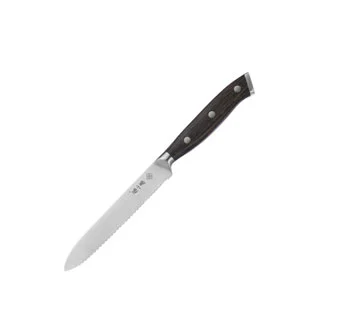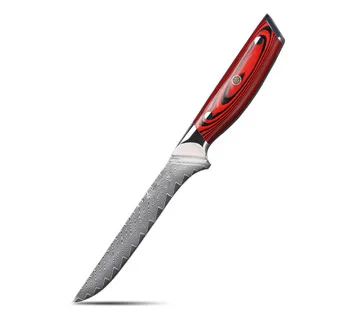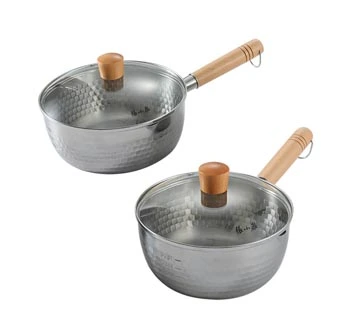In the world of cooking, having the right tools is essential for achieving culinary excellence. Among the most important tools in any kitchen are knives. However, with a wide variety of kitchen knives available, the right kitchen knife selection can be overwhelming. To ensure you make informed choices, this blog will guide you through the key factors to consider in kitchen knive selection. From blade types to handle materials, as one of the proficient kitchen knife wholesale suppliers, we'll explore the essential aspects that can make a significant difference in your cooking experience.
Blade Material and Construction: The blade material plays a crucial role in a knife's performance and durability. High-quality kitchen knives are typically made from stainless steel, which offers excellent corrosion resistance and edge retention. Look for knives with high carbon content for added strength and sharpness. Additionally, consider the blade construction, such as forged or stamped. Forged blades are known for their superior strength, while stamped blades are lighter and more affordable.
Blade Types for Different Tasks: Different kitchen tasks require specific blade types. Understanding the various knife styles and their intended uses will help you build a well-rounded knife collection. Common blade types include chef's knives for versatile tasks, paring knives for precision work, serrated knives for slicing bread and delicate produce, and boning knives for removing bones from meat. Assess your cooking habits and the types of dishes you frequently prepare to determine which blade types will be most beneficial.
Handle Design and Comfort: The handle of a kitchen knife greatly impacts comfort and control during use. Look for handles made from materials like wood, plastic, or composite materials. Each material offers different levels of grip and durability, so choose one that suits your preferences. Additionally, pay attention to the handle's ergonomic design, ensuring it feels comfortable and secure in your hand. A well-designed handle will reduce fatigue and provide better maneuverability, leading to safer and more efficient cutting.
Weight and Balance: The weight and balance of a knife can significantly affect its performance and ease of use. A well-balanced knife ensures that the weight is evenly distributed between the blade and handle, allowing for better control and reduced strain on your wrist. Consider the weight of the knife and how it feels in your hand. Some chefs prefer heavier knives for stability, while others prefer lighter knives for agility. Ultimately, choose a knife that feels comfortable and well-balanced for your specific needs.
Maintenance and Sharpening: Maintaining the sharpness and longevity of your kitchen knives is essential. Consider the ease of maintenance and sharpening when selecting knives. Some knives require regular honing and professional sharpening, while others are designed for easy at-home sharpening. Additionally, consider the knife's edge retention properties. A knife with excellent edge retention will hold its sharpness for longer periods, reducing the frequency of sharpening.
The right kitchen knive selection is a crucial step towards achieving culinary success. By considering factors such as blade material, blade type, handle design, weight and balance, and maintenance requirements, you can ensure that your knives enhance your cooking experience. Invest in high-quality knives that suit your cooking style and preferences, as they will not only make your culinary tasks more enjoyable but also contribute to improved precision, efficiency, and safety in the kitchen. With the right knives in your arsenal, you'll be well-equipped to embark on a culinary journey filled with delicious creations.


